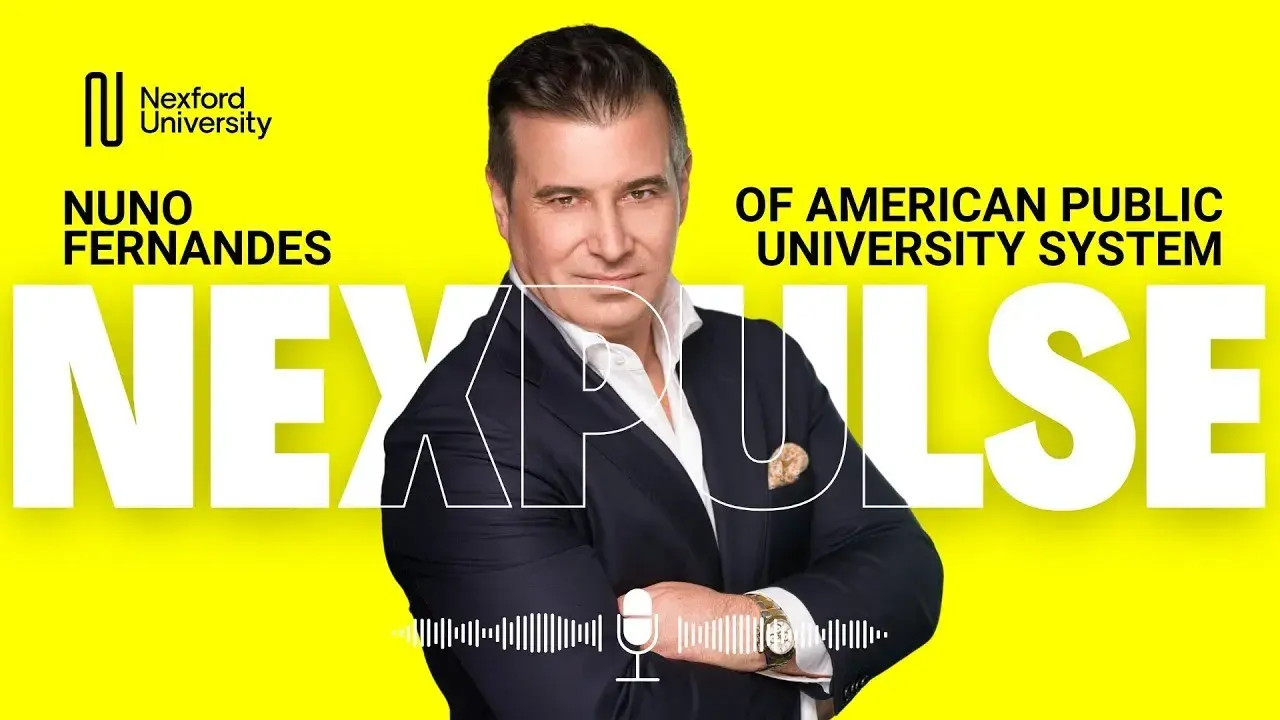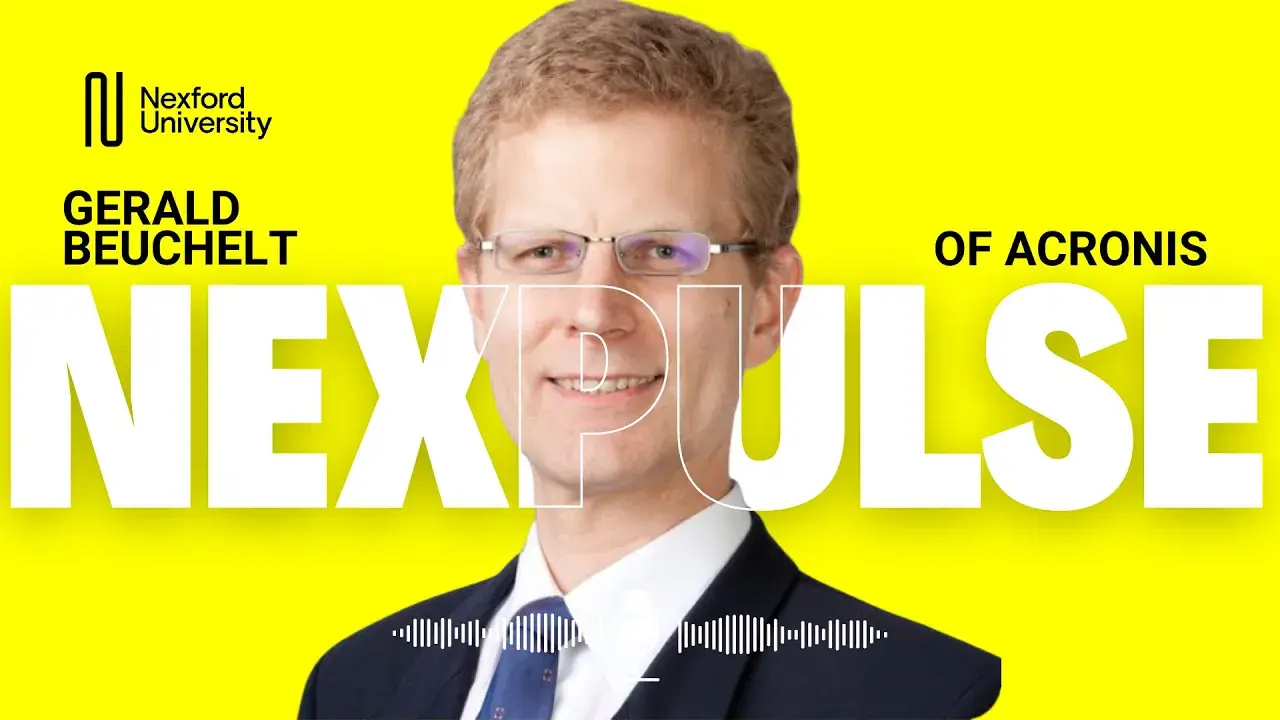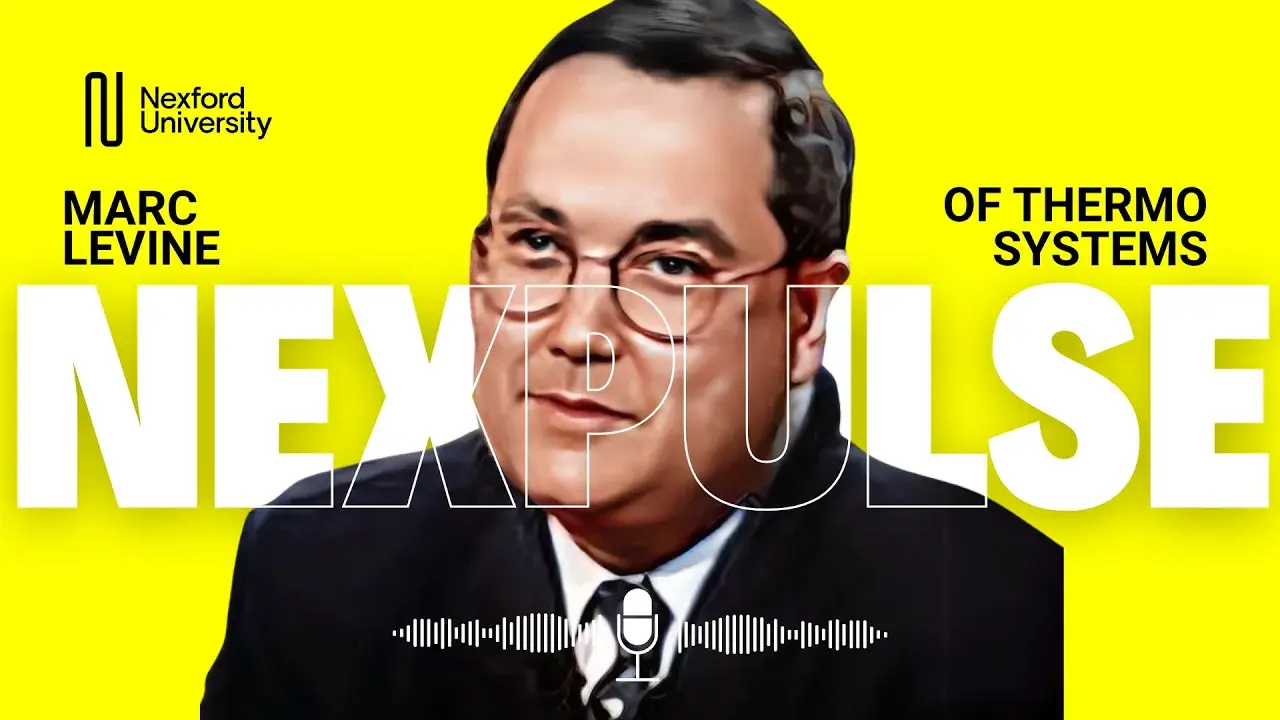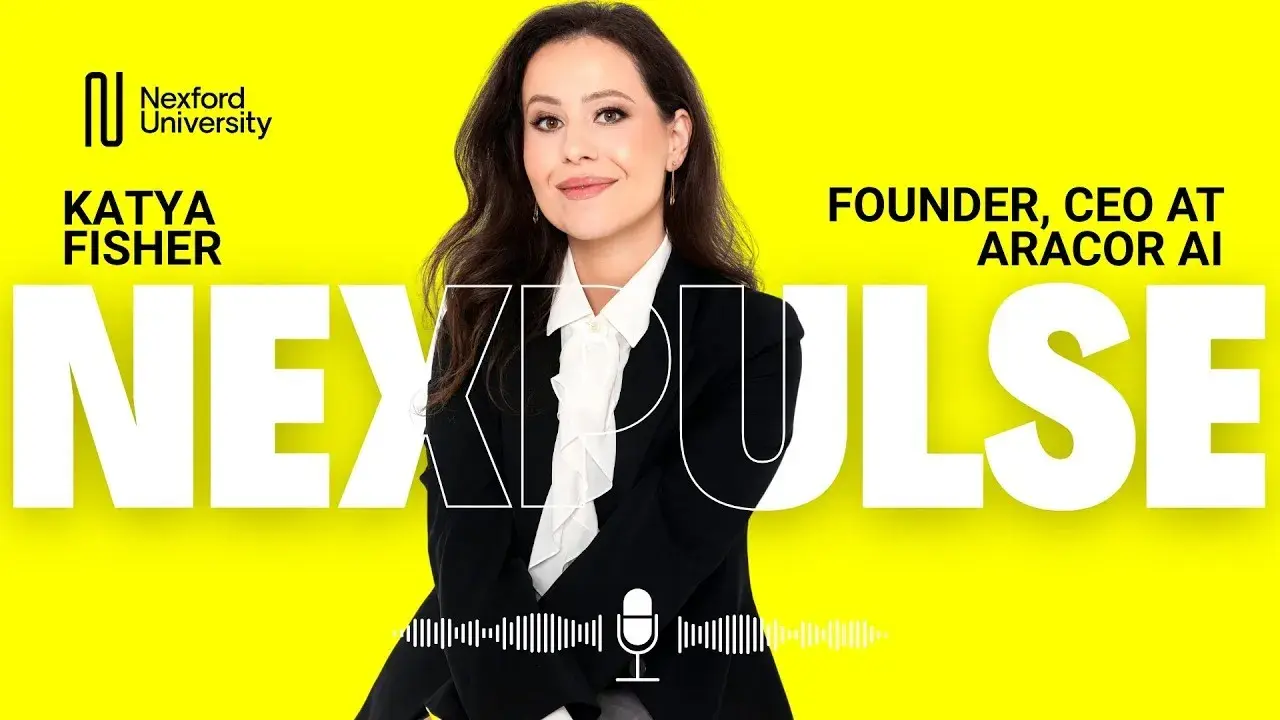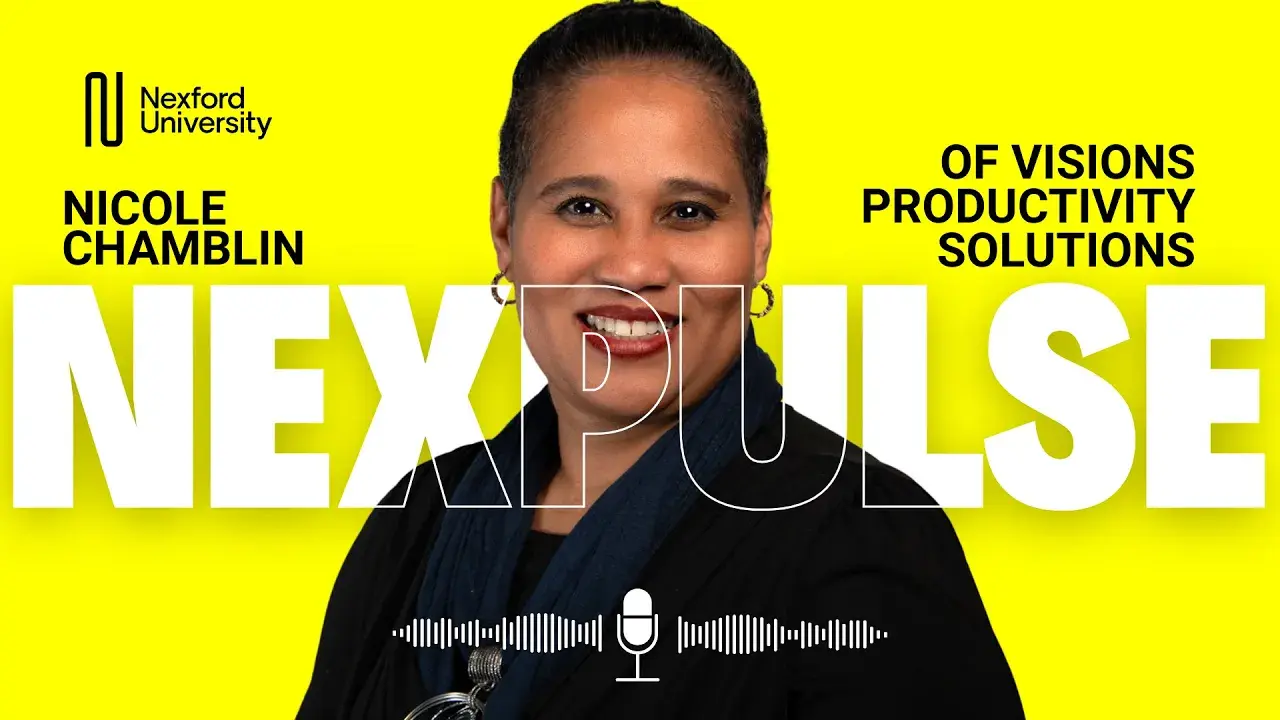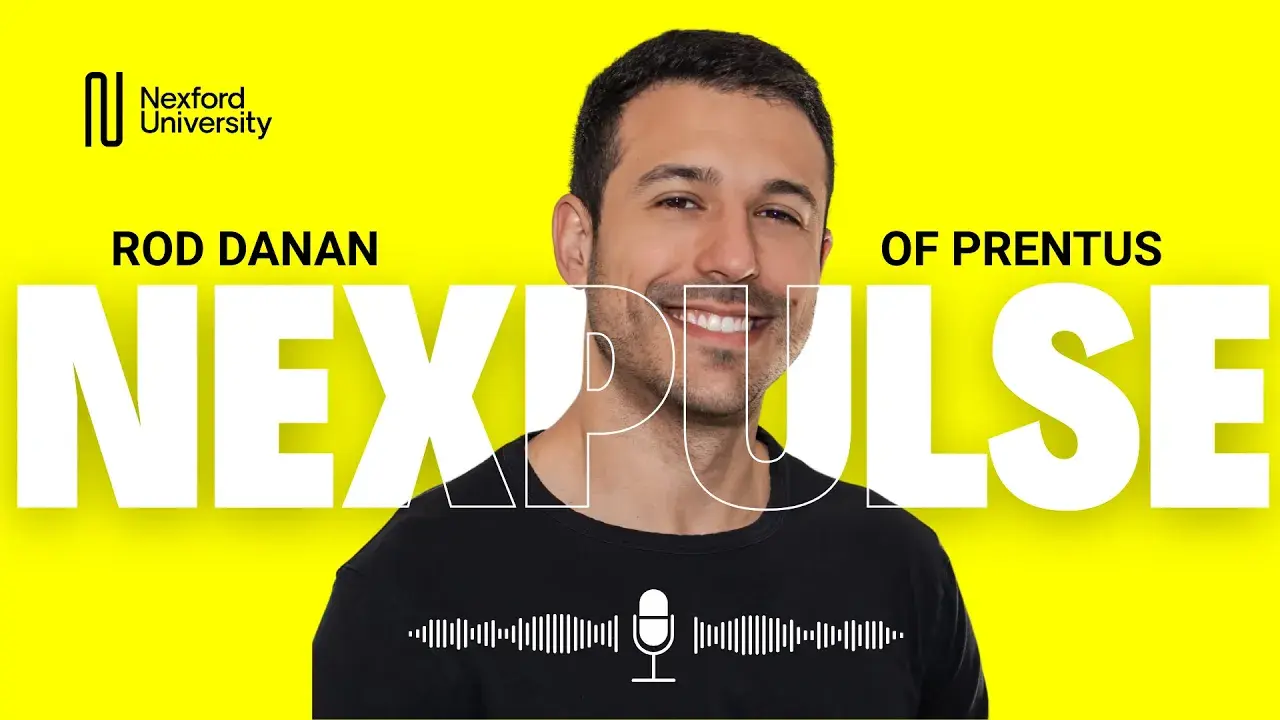Transcript
yeah I think there's going to be a
period of time where there's going to be
some disruption where the you know the
corporations the different industries
the different institutions they are
trying to figure out how to use AI and
how how to you know to leverage the the
potential of AI and uh students will try
you know trying to figure out how to
learn about that and certainly there's a
there's a period of time where the two
things run in parallel and and uh so
there will see some disruption certainly
we will see some jobs that will change
in the near future but at the same time
a lot of jobs will be created that don't
exist today so you know I don't I don't
have a sort of a pessimistic approach to
this I actually have an optimistic
approach to this but it it will create
change but the same thing happened sort
of in the ' 90s you know late 90s in the
beginning of the internet and and you
know when you go back 100 years you I
think the average population in United
States that work in agriculture was like
something like 60% and today it's
significantly smaller that but a lot of
jobs that exist today didn't exist 100
years ago so I think something similar
will happen
[Music]
here certainly the the number one the
obvious one is AI literacy right I think
that the students should be exposed to
AI during their academic journey I I
think not doing that is a disservice to
the students because once they graduate
they will need those tools to be
successful in the job market so AI
literacy is number one i think the
second one is critical thinking that you
know the students have to learn to
understand and to think like what is
true what is not true when to use AI
when not to use AI and to sort of
decipher the different messages that are
being provided there's an overflow of
information today so I think critical
thinking is incredibly important to
really understand what is valuable and
what is not valuable and the third one
is a growth mindset this is not
something new but I think it's very
important today to be able to um have
that inner you know that that strength
to differentiate yourself to have that
kind of warrior spirit to to to try to
be um not necessarily better than others
but better than you every day right that
you want to improve every day a bit
better and be and improve every day
better than yesterday so I think those
three skills are very important critical
thinking AI literacy and growth
mindset yeah i think the first the first
decision they need to make is that they
should choose a university that embraces
AI as part of the learning process as I
said going through an academic journey
without being exposed to AI today is a
disservice to the students unfortunately
and I understand why but unfortunately
many universities they decide to sort of
pretend that AI does not exist and I
don't think that's a good approach i
think the the good approach is the exact
opposite so the first the first decision
that the students should make is to
choose a university that embraces AI and
that makes it a part of their academic
journey
i get that question a lot and I debate
that a lot with you know with my provost
you know the provost of AP US and and
the academic team and and I think
sometimes people also tend to exaggerate
the point because it's no different than
someone you know a student in the past
you know a student could go on Google
and sort of copy something and paste and
then how would you know that that was
created by the student I think if
anything I could make the argument that
now it's more obvious if the student is
cheating because Now you have AI to tell
that if that was produced by AI right
and in the past you know think about it
like in the like you know go back 40
years 50 years you know it was very hard
if you go to a library 50 years ago and
then you would literally copy some
sentence from a book you know the
chances that the professor reviewing
that that would know that exact sentence
was part of that exact book i would say
that they were small with then with the
internet it was a bit more obvious
because you could sort of like search
for what whatever you have from the
student but it was still possible that
the student goes to some random page and
copies information and past information
so you would have to think that the the
faculty the professors would be
validating everything that was was
really created by the student today it's
easier for the student to create content
using these technology but it's also
easier for the faculty to see that that
technology was created by you know
artificial intelligence so my
recommendation again would be for the
universities to embrace the use of AI i
don't think there's anything wrong to
use AI to do a paper to do an assessment
to do some sort of academic work for as
long as you disclose it right because
most likely when you find a real job you
will use AI to try to perform at that
job so the university in essence should
prepare you for the real work and for
you know real life and real life is that
you are in a job market you know trying
to be successful so I would say that
that you have to use it you know in a
eth ethical way and the university
should determine what ethical means but
uh but again I would I would recommend
that the students choose a university
that has that clarity about what ethical
usage of AI
[Music]
means I don't know I think it makes
sense in many ways what I think will
happen is that the faculty will will
will need to be a lot more creative than
what they are today to evaluate what the
students know Right because as we said
it's easy you know you have a let's say
a multiplechoice exam you put that on
CHPT and you get this you know the
answers in 2 seconds so that's not a
good methodology because how do you know
right if that the student learn what
what he or she was supposed to learn if
it's an essay certainly you know you can
use chat and if you have critical
thinking if you have a good rational you
can learn a lot and you know using AI
could enhance that learning it's also
true that you can just do it you know in
two seconds and just copy paste whatever
was done by AI so I I think that that
faculty has a tremendous opportunity to
rethink how students are evaluated and
and come up with new ways of doing so
that are significantly different than
what has been done until now and
certainly project project based learning
could be one of
them 100% i have no doubt and and it's
not that I have doubts or not is that
that's what the data shows so there's a
lot of noise recently you know about
higher education having value or no
value and I think that that the
discussion is very shallow in many ways
because if you look at the data the data
shows that if you have a higher
education degree your chances of
producing more revenue through your
adult years they are significantly
higher than if you don't right and and I
take these numbers with a grain of salt
but I think it's almost double the
revenue on average that you produce if
you have a higher edition degree versus
if you don't so the question the
question becomes how much is the how
much should it cost which I think is
really the question that we should be
talking about because I agree that
higher education specifically in the US
is incredibly expensive and not
affordable for most people unless they
get money from someone else and then
they have debt that they have to pay for
you know for sometimes for decades so I
think rethinking the the the the tuition
rethinking the price of our education is
incredibly important but but if you are
able to choose a career where you can um
you can find an an a price that is
somehow affordable i think the return on
investment is certainly there for the
majority of the people right it's never
it's never that it is the same for
everyone but on average it does pay off
and and I would highly recommend that
that you know everyone that can do it do
it and now with online education you can
still work create your own company you
can still travel you can still do all
these things and and yet you have access
to to education and to that degree that
will open some doors you know I always
look at a higher education degree as a
key that opens doors but then once the
door is open it's entirely up to you
what you want to do right but if you
don't have that key it's very hard to
open that door and you know I find
somehow you know it's it's ironic that a
lot of the people that that talk about
the low value of of higher education
they all come from incredibly prominent
universities and they have degrees from
incred prominent universities so so I I
think it's some somewhat of a trend and
I do agree that that the price of the
tuition of higher education is
incredibly expensive and I think that
discussion is important but the value is
there
yeah I I would think that that
discussion still happens in many
countries outside the United States i
would think that in the United States
that that's no longer a discussion point
my recommendation is always you know
choose a good university it's it's hard
to believe that a good university is
good on campus but it's bad online or
vice versa you know either you have
quality or you don't have quality the
same with a doctor you can go visit a
doctor you know on a face-toface
consultation or you can have you know
tele medicine and talk to that same
doctor on Zoom or on teams and it's the
same doctor he or she has the same
knowledge the fact that you're not
inside the same geographical space
doesn't make any difference for the
knowledge that that doctor has and I
think in education is the same if if the
university is a good university that is
committed to quality that is committed
to student outcomes that is committed to
good service you will get a good
education uh either online or on campus
now I I never say that one is better
than the other i I I I think that that
both have have their own merits and and
their own challenges i believe that you
know for younger um students you know 18
19 20 they tend to prefer the onampus
methodology because of the of the aspect
that you know that that life on campus
has although I have to say that I read
recently that about 20% of that
population already prefers to study
fully online and I think that will
continue to improve and many countries
around the world you know some like
Brazil that that number is already 30 to
35% because these younger generations
you know they are they were they were
born digital so for them it's only
normal to you know to be online but I
understand the life on campus is is
attractive for for a younger adult and
and now they want to have that
experience so this is sort of like when
the internet came about that people were
saying that retail is going to disappear
and shopping malls were going to
disappear and they didn't right but they
had to transform themselves and and
today you know shops are more like a
showroom where you go to see the product
and then you're going to try to go
online and find a good deal for that
same product and and traditional
education will always be there online
education will continue to expand but if
the university is a good university the
quality is not different between
modalities yeah that's a fantastic
question you know and I think about that
a lot because I think the concept of
networking has changed so much over the
last decade um especially the last
decade you know I remember when I did my
MBA that everyone said oh the MBA is
fantastic for networking and it was and
it was and I I'm still in contact with a
lot of my former colleagues from from my
NBA however I think that the intensity
of networking that we have today is
completely different than what it was 10
or 15 years ago so my recommendation
would be to go above and beyond you know
the university but actually to think
about how you use the tools you have
especially the social media tools to
build connections that are relevant for
your career or for your interests and
and not just to you know to be looking
at videos of cats or something like that
right so although that might be fun too
but but my point is I think networking
today go it's it's it's it's a lot more
than the university and again I don't
want to minimize the aspect of someone
that wants to go to onampus program and
certainly that allows you to to network
with the colleagues that that you have
in your class although I would also say
that's also sort of limited because if
you are in a class with 15 20 people
okay that's your network but okay um I
you know you could argue that that's not
much so I would encourage people to use
the tools they have today to network
tools like LinkedIn for example where
you can network with with people that
share the same interests or that could
be professionally relevant for your
professional career i think that those
tools allow you a scale that no
university could could allow you know in
a traditional form
Subscribe to our newsletter
Don't miss out on our latest updates.
Nexford Staff
Blog author
Unlock Your Potential: Explore Our Programs
Invest in yourself and your future. Discover our range of degrees, courses, and certificates to achieve your goal

